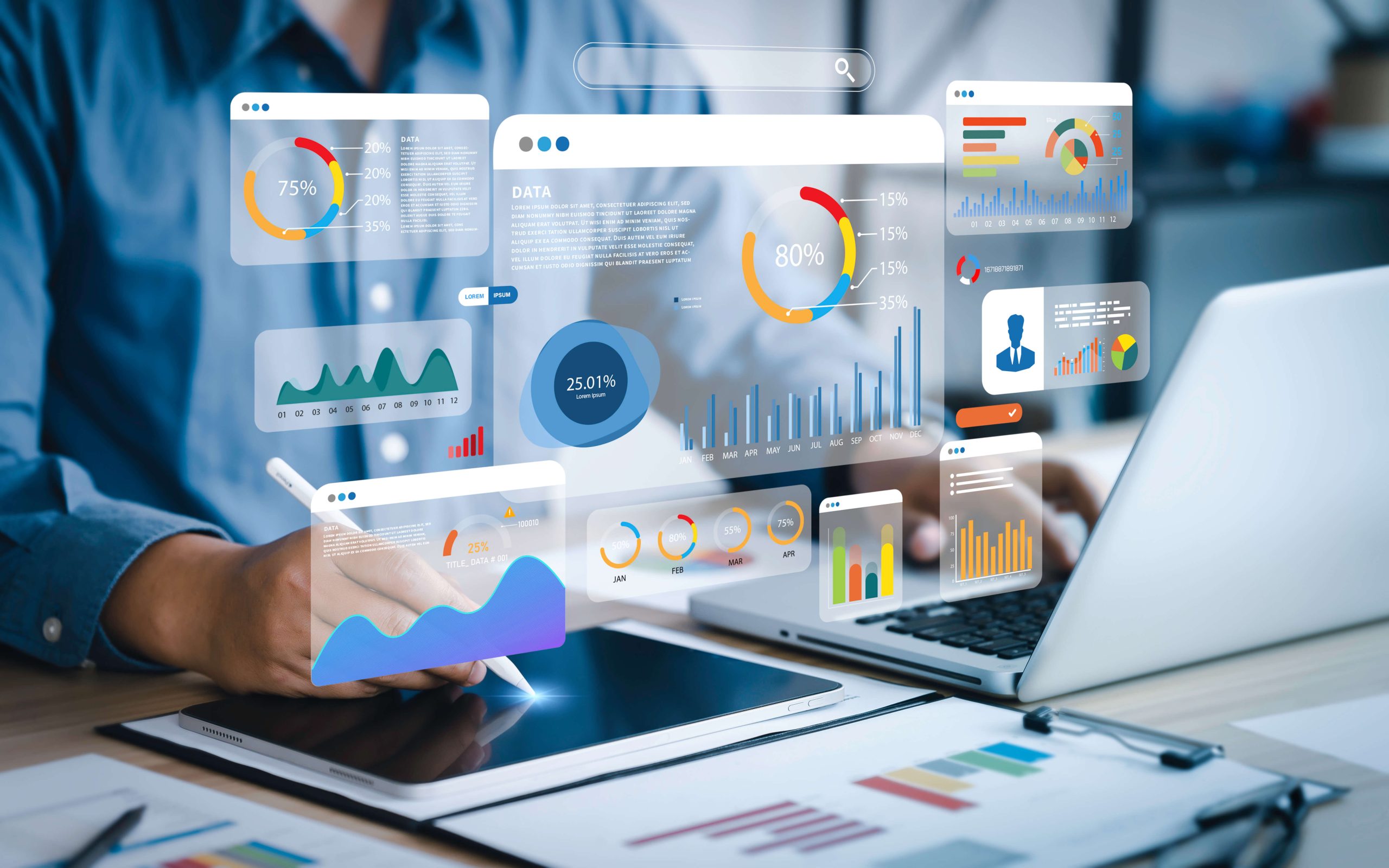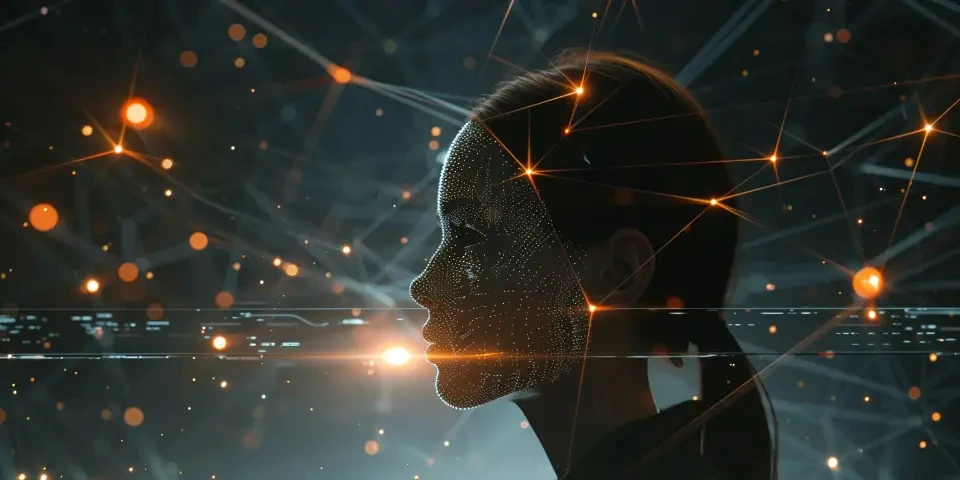
How AI Transforming in Industries and Daily Life – The year 2025 marks a pivotal moment in the evolution of technology. Among the myriad of advancements, generative AI stands out as one of the most transformative innovations. From content creation to healthcare, this technology is reshaping industries and redefining how individuals interact with machines. In this article, we delve into the latest trends in generative AI, its relevance to society, and the potential impact it holds for the future.
How AI Transforming in Industries and Daily Life?
Generative AI refers to artificial intelligence systems that create new content, such as text, images, music, or even video, based on input data. Unlike traditional AI, which primarily analyzes and processes information, generative AI can produce original outputs that mimic human creativity. Tools like OpenAI’s ChatGPT, DALL•E, and MidJourney have showcased how this technology can replicate and even enhance human productivity.
The Key Trends in Generative AI
1. Expansion of Creative Tools
Generative AI tools are becoming more accessible to individuals and businesses alike. Platforms that were once limited to tech-savvy users now offer intuitive interfaces for anyone to generate high-quality designs, articles, or videos. For instance, Canva’s AI integration enables users to create professional-grade graphics effortlessly, while Jasper AI caters to marketers looking for engaging content.
2. Personalized User Experiences
E-commerce platforms and social media channels are leveraging generative AI to enhance personalization. AI-generated recommendations for products, tailored social media posts, and adaptive customer service responses are creating more meaningful interactions between businesses and their audiences.
3. Integration with Augmented and Virtual Reality (AR/VR)
Generative AI is fueling the growth of AR and VR experiences. By creating realistic virtual environments, this technology is paving the way for immersive gaming, virtual shopping experiences, and even virtual real estate tours. AI-powered avatars that mimic human behavior are also becoming central to these environments.
4. Revolutionizing Healthcare
In healthcare, generative AI is being utilized to design new drugs, analyze patient data, and even simulate complex surgeries. Tools like AlphaFold by DeepMind have made breakthroughs in protein folding predictions, accelerating the development of life-saving treatments.
5. Ethical and Regulatory Discussions
As generative AI continues to evolve, so do concerns about its ethical implications. Issues like copyright infringement, misinformation, and data privacy are prompting governments and organizations to establish clear guidelines for AI usage. In 2025, countries like the United States and members of the European Union are working on legislation to ensure responsible AI deployment.
How It’s Transforming Industries and Daily LifeHow It’s Generative AI Impacts Daily Life
Generative AI is no longer confined to research labs or niche applications. It has permeated everyday life, offering both convenience and opportunities for creativity:
- Content Creation: Freelancers, bloggers, and businesses are using AI tools to write articles, design graphics, and produce videos. This not only saves time but also reduces the need for specialized skills.
- Education: AI-driven platforms like Duolingo Max provide interactive learning experiences, adapting to the unique needs of each learner. Virtual tutors powered by generative AI help students grasp complex concepts more effectively.
- Home Automation: Smart devices integrated with generative AI enable personalized voice assistants that understand and predict user preferences. These assistants can manage schedules, control home appliances, and even recommend meals based on available ingredients.
- Entertainment: Streaming platforms are utilizing AI to create engaging and interactive content. Personalized playlists, AI-generated movie scripts, and adaptive gaming experiences are becoming mainstream.
The Societal Relevance of Generative AI
The relevance of generative AI extends beyond its applications. It addresses key societal needs, such as:
- Accessibility: Generative AI makes technology more inclusive by providing tools for individuals with disabilities. For example, AI-generated captions and audio descriptions enhance access to digital content.
- Efficiency: By automating repetitive tasks, generative AI frees up time for people to focus on more meaningful work, improving productivity and work-life balance.
- Empowerment: Small businesses and individuals now have access to tools that were previously out of reach, leveling the playing field in competitive markets.
Challenges and Considerations
While generative AI offers immense potential, it also comes with challenges that need addressing:
- Ethical Concerns: The misuse of AI for deepfakes, misinformation, and plagiarism poses serious risks. Ensuring that generative AI is used responsibly is crucial.
- Bias in AI Models: AI systems can inadvertently reflect biases present in their training data, leading to unfair outcomes. Developers must prioritize fairness and inclusivity.
- Job Displacement: The automation of creative and administrative tasks raises concerns about job security. However, it also creates new roles in AI development and oversight.
The Future of Generative AI
As generative AI continues to evolve, its integration into various sectors will deepen. Here are some predictions for its future:
- Hyper-Personalization: AI systems will become even more adept at understanding individual preferences, creating unique experiences for users.
- Collaborative Creativity: Rather than replacing human creativity, generative AI will act as a collaborator, inspiring new ideas and possibilities.
- Enhanced Regulation: Governments and organizations will establish stricter guidelines to ensure ethical AI development and usage.
Conclusion
How AI Transforming in Industries and Daily Life Generative AI is not just a technological trend; it’s a paradigm shift that is transforming how we live, work, and interact with the digital world. By embracing its potential while addressing its challenges, society can harness generative AI to create a future that is innovative, inclusive, and sustainable. As we navigate this exciting era, staying informed and proactive will be key to unlocking the full potential of this groundbreaking technology.






%20(2).svg)
%20(1).svg)



:max_bytes(150000):strip_icc()/Term-Definitions_Digital-Marketing-5ae6ea1aee934b02a94a1a4d9401443d.jpg)




